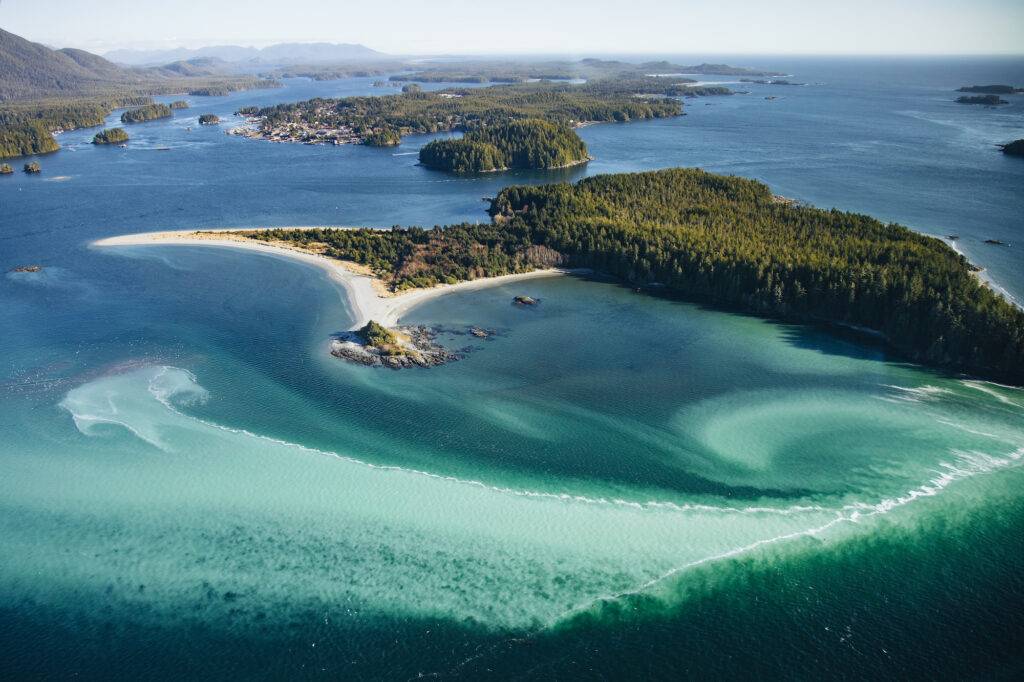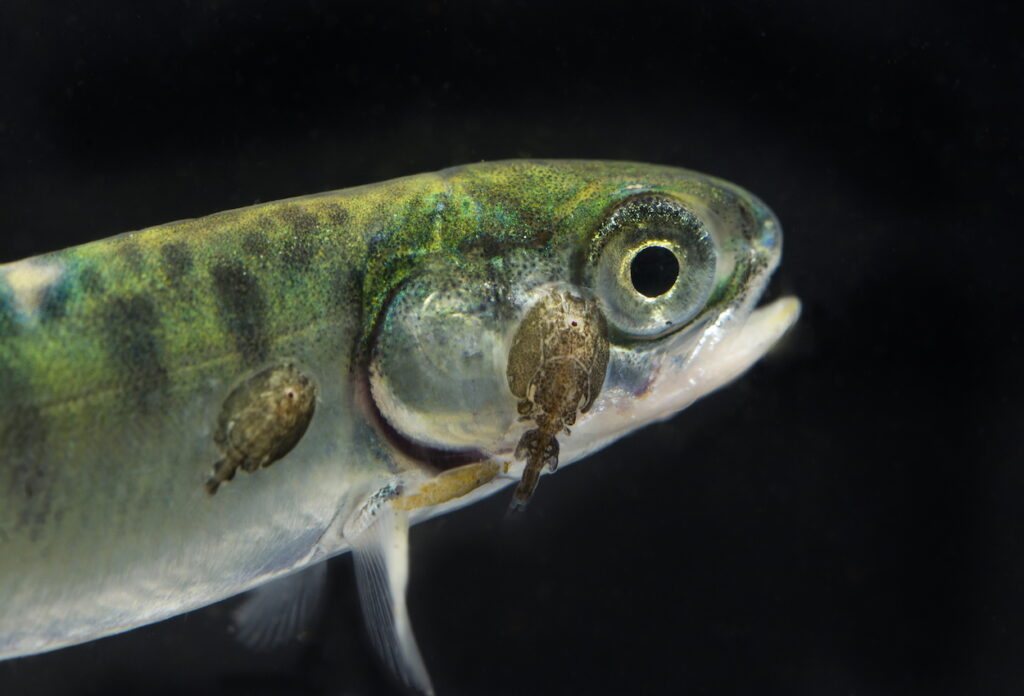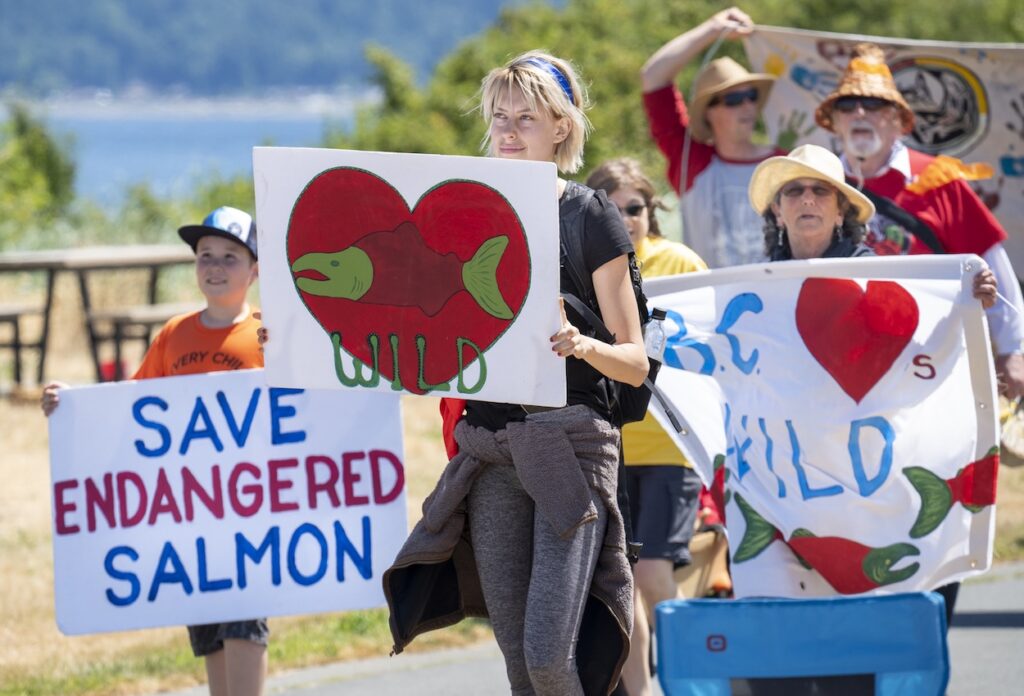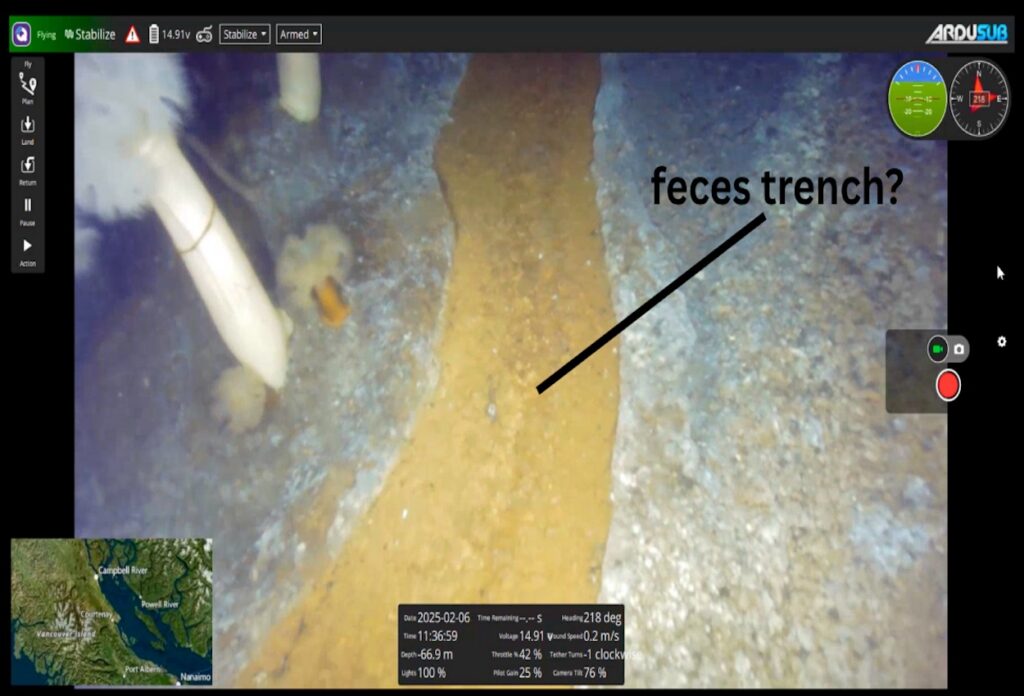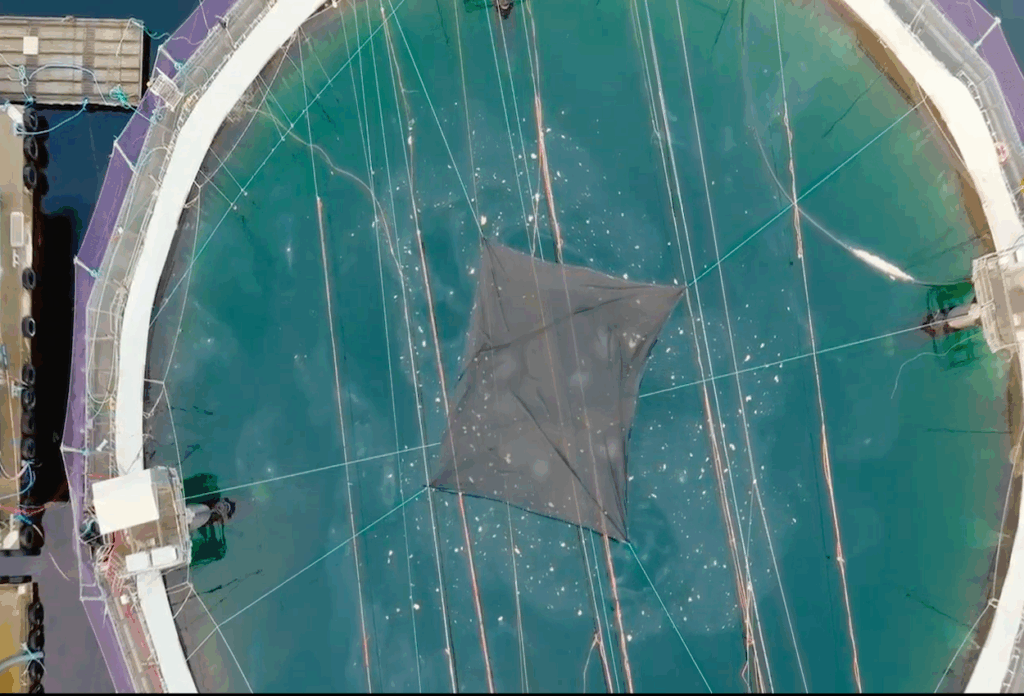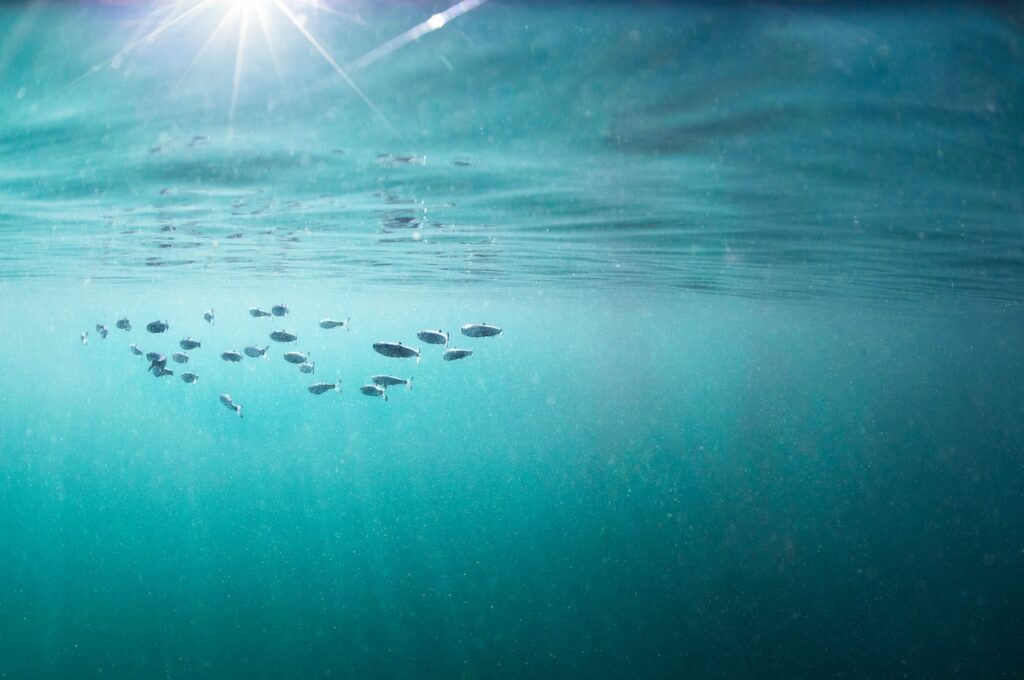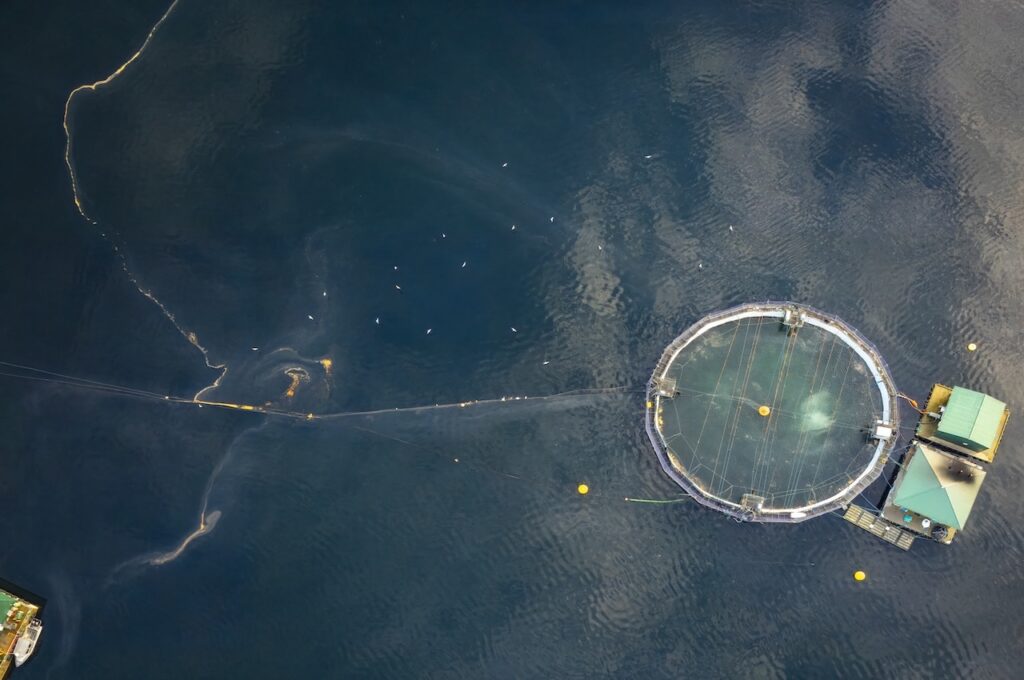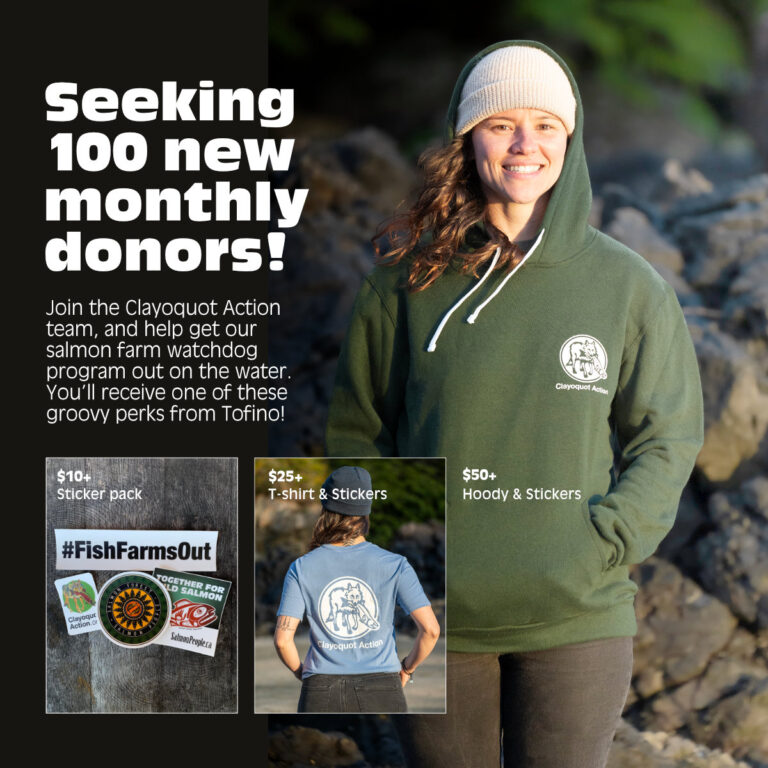A week ago last Saturday I was at home drinking coffee with Bonny, when the ocean out front began turning turquoise. There had been lots of sea lions swimming past in recent weeks, so we knew there were herring around—they were finally spawning! (Photo at bottom of page). Herring were formerly abundant in Clayoquot Sound. But they were heavily over-fished for their precious roe, known in Nuuchahnulth as kʷ̓aqmis.
Wild herring play a key role in coastal ecosystems. Much like salmon, their annual migration home to spawn provides abundance for wildlife, and also brings back oceanic nitrogen to fertilize ancestral forests.
But herring in salmon farms? Sadly, yes. BC salmon farms use obsolete 1980s technology. Not only do open-net pens allow salmon sewage, pesticides and pathogens to flush out of the farms—they also allow wild herring to swim right in! There they can grow alongside the farmed salmon, until they are too big to swim back out.
There are three ways herring are present on salmon farms: in the feed, swimming in the pens, and in the bellies of farmed salmon.
Herring in the feed
First of all, there are herring in the feed. Herring are typically fished for their eggs, a delicacy overseas. The carcasses are then reduced into fishmeal, and sold to salmon aquaculture facilities. In 2019, over 18,000 tons of herring may have gone to feed salmon farms in BC. Meanwhile, the Department of Fisheries (DFO) spends millions of dollars looking for ways to save Chinook salmon and Southern Resident Killer Whales…
Herring can swim right in
The mesh openings on salmon farms are large enough to allow wild herring to swim right in. Although this was rumoured for years, it wasn’t confirmed until 2017 and 2018 when Chief George Quocksister began boarding salmon farms and filming what was in the pens. Being a former herring fisher, he immediately recognised the large numbers of herring swimming amongst the farmed Atlantic salmon.
Watershed Watch Salmon Society published a paper in 2019 looking at incidental catch of wild fish in BC salmon farms. The companies are only required to report incidental catch at certain times: when harvesting, during transfer, or when the nets are removed. This implies that at other times, while wild fish are likely in the pens, they are not monitored.
In May 2012, Mainstream (now Cermaq, owned by Mitsubishi) had a viral outbreak at their Dixon Bay farm in Clayoquot Sound. This resulted in half a million Atlantic salmon on their farm being culled. But they also killed 358,000 wild herring!
In August that year, Mainstream culled another 47,000 herring at their nearby Millar Channel facility. That makes a total of 405,000 herring, that summer alone.
If those numbers are anywhere near average numbers, BC salmon farms could at any moment be hosting a total of more than ten million wild herring!
Regulations stipulate that “the licence holder must ensure that any live incidental catch are immediately returned to waters outside the aquaculture facility in a manner that causes it the least harm.” But DFO doesn’t collect data on live releases, and no farm surveys of wild fish (dead or alive) are reported.
Farmed salmon eat wild herring
Fish farms in BC use underwater lights to increase growth rates. A manufacturer’s website actually boasts: “Ocean aquaculture fish farmers can benefit by attracting smaller bait fish into their sea pens providing a natural food source and reduce production costs.”
A study by DFO found 7 wild fish in the stomachs of 7,200 farmed fish. At that rate, Watershed Watch estimates that 17,000 wild fish may have been eaten on BC salmon farms in 2017. It is difficult to know how trustworthy DFO’s study is—it was conducted in partnership with fish farming companies. It is unclear how the fish were selected for sampling, or whether the industry knew in advance which farms would be studied.
Fish farms have to go
One thing is for sure: wild herring are too important to allow fish farms to harm them in any way. There is one simple solution to protect wild herring—remove salmon farms from BC waters.
Please sign the petition asking Fisheries Minister Joyce Murray to not renew BC fish farm licenses when they expire this June.
Dan Lewis is Executive Director of Clayoquot Action.
